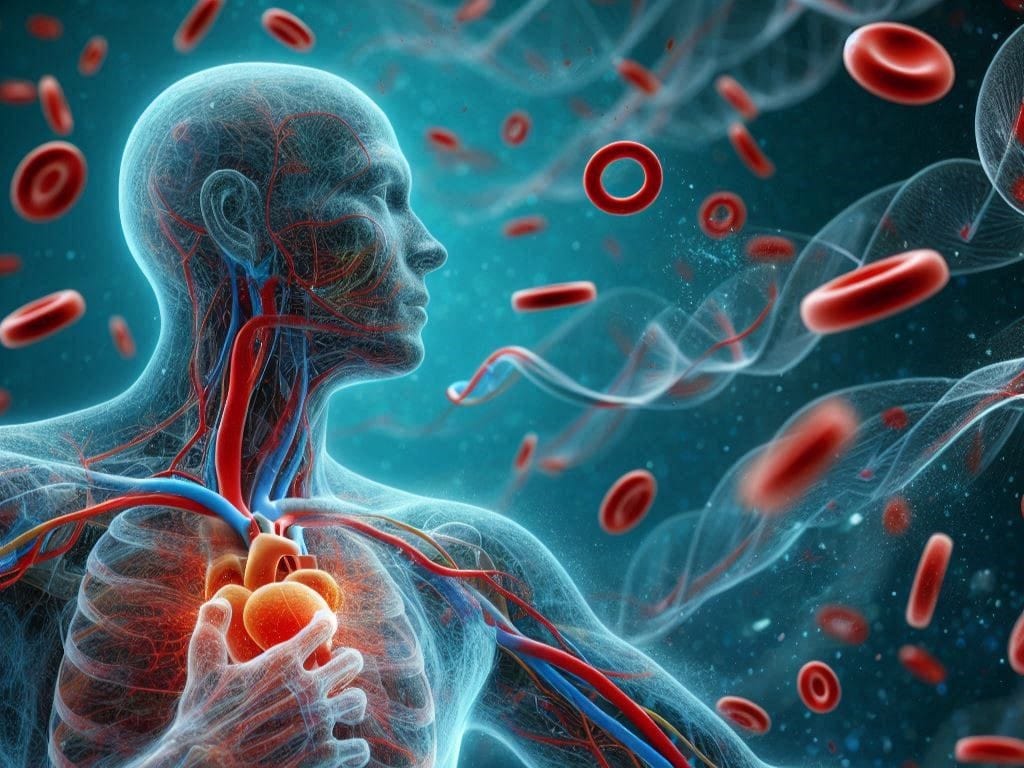Local interventions to global diseases
With the Finance Bill 2024 withdrawn, the Ministry of Health needs an updated plan for the Social Health Insurance Fund (SHIF) rollout. Meanwhile, blood donations continue saving many, Africa is striking up vaccine development partnerships abroad and high male suicide rates in East Africa call for culturally informed treatment.
Here are the main stories in public health this week:
- SHIF registration scheduled for 1st July
- First-ever malaria prevention campaign launches in Turkana
- Clinical officers still striking for better pay
In this week's edition
SPOTLIGHT: Push for sickle cell disease screening
HEADLINES: Top 3 stories in public health this week
INSIGHT: Male suicide rates in East Africa
PAUSE: This Week In: Education
NEWS: More stories in public health this week
QUICK: Other stories in public health this week
REGION: Top public health stories across the region
EXTRA: Generative AI speeds up drug discovery
SPOTLIGHT
Push for sickle cell disease screening

"In Kenya, there are about 14,000 new cases of Sick Cell Disease (SCD) every year and 50 to 90% of those diagnosed will not see their 5th birthday." - Dr Doreen Karimi, Paediatric Haemotologist Oncologist at Gertrude's Children Hospital.
Sickle cell disease is a genetic condition caused by the sickle cell gene that protects against malaria hence the high prevalence of the disease in malaria-prone areas. The most common symptoms are anaemia, yellow eyes (jaundice) and recurrent pain, especially in the arms, legs and chest.
To address patient concerns, the Ministry of Health (MOH) in partnership with the Non-Communicable Diseases Alliance of Kenya (NCDAK) is implementing different programmes in 17 sickle cell endemic counties. Some of the initiatives include:
- Newborn screening to find out if the children are carriers or have sickle cell disease.
- Pre-marital counselling for couples to find out if they are carriers so that they can make informed decisions about marriage and having children.
- Using Community Health Promoters (CHPs) to inform people that sickle cell is a treatable inherited disease and children can survive longer with earlier diagnosis.
- Training people living with sickle cell disease on self-management practices, self-advocacy and urging county governments to provide treatment services.
Blood donations are a key survival tool for patients living with SCD according to Jacinta Ochieng'. "I was born with sickle cell and have been dependent on transfusions often since childhood. I applaud the Rotary clubs across the nation and worldwide for this blood donation exercise and a major thank you to the donors who willingly come out to give blood. It goes a long way," she remarked.
It's encouraging to learn about a condition and community-level interventions for its treatment paving the way for advocacy for other conditions. It's also increasingly good to know that one of the simplest ways to help many patients is through regular blood donation.
NEWS
The week's top stories
- SHIF registration scheduled for 1st July: Kenyans can utilize the USSD code *147# or visit the Social Health Authority (SHA) website to access the free self-registration process. CS Nakhumicha shared that the Ministry of Health is adjusting to cater for the Primary Healthcare Fund and the Emergency and Chronic and Critical Illness Fund after the Finance Bill was withdrawn.
- First-ever malaria prevention campaign launches in Turkana: The Seasonal Malaria Chemoprevention (SMC), targeting children under five years, is the intermittent administration of a curative dose of antimalarial medicine whether or not they are infected. Dr Kibor, programme head, said "The goal is to maintain therapeutic antimalarial medicine concentrations in the blood throughout this period of greatest malarial risk."
- Clinical officers still striking for better pay: The union cites the failure of the Ministry of Health and the 47 counties to honour court orders directing them to conclude Collective Bargaining Agreement negotiations. Kenya Union of Clinical Officers (KUCO) chairperson Peter Wachira said, "Although we have been having several meetings, we have noted a lot of laxity and lack of goodwill from the government and that's why for more than one month we are yet to enter into a consent or a return to work agreement.”
PAUSE

INSIGHT
Male suicide rates in East Africa

In Kenya, men are three to four times more likely to die by suicide than women. The rate of suicide increases with age worsening in men over 85 years possibly due to isolation, losing loved ones and chronic illness.
"We are raised to suppress emotions because showing vulnerability is seen as a sign of weakness. This cultural conditioning starts early and affects how men cope with life's challenges" - Dean Karemera, journalist and mental health advocate
This creates an illusion that men aren't managing severe mental health problems yet Onesmo Petro, CEO of Mental Health Tanzania, shares that 80% of suicide cases in Tanzania are men. He adds that minimal research on men's mental health reflects society's broader neglect and the urgent need for targeted solutions.
In Rwanda, women often report higher rates of mental health issues compared to men according to Prof. Vincent Sezibera, director of Rwanda Psychological Society. “This has led to the misconception that women are more vulnerable to mental health problems than men," he said.
Social norms like the expectation to be providers and protectors require a logical way of thinking so men may prioritise this in every setting even when they need help. Dr Wanda Riza, a psychiatrist, feels we need to customise treatment methods for men, "Effective strategies must integrate cultural understanding and promote inclusive spaces where men feel safe to address their mental health needs."
Encouraging men to just talk may not be a comprehensive solution as society still expects them to continue assuming these roles. So we need to listen and learn from their existing strategies to co-create safe spaces for them beyond Mental Health Awareness Month in June.
NEWS
What else we learned
- New teenage pregnancy prevention strategy by NDSCC includes sensitizing boys and men on risky sexual behaviour considering some girls enter sexual arrangments to meet personal needs like pads. "We hope to make them understand the dangers of engaging in sexual intercourse with young girls including HIV and teenage pregnancies,” said Dr Masha, the CEO.
- Busia County trains Community Health Promoters (CHPs) at Teso North Sub-county Hospital on communicable diseases to mitigate the impact of Red Eye disease, malaria, TB etc. "This will play a pivotal role in reducing cases and ease congestion in hospitals," said Jackline Asinge, the Nurse in Charge.
- Africa launched a $1.2 billion, African Vaccine Manufacturing Accelerator (AVMA) in Paris. According to Gavi, the Vaccine Alliance, the money will come from donors like the Bill & Melinda Gates Foundation and the European Commission over the next ten years through strategic reallocations of COVID-19 funding. AVMA will offer incentives to the region’s vaccine producers to hit regulatory and supply milestones to offset high upfront investment costs.
QUICK
One-liners
- How Makueni reduced maternal mortality in less than three years [The Standard]
- Ovarian insufficiency: When ovaries take an early retirement [Business Daily]
- Kilifi Government launches grassroots primary health care campaign [Kenya News Agency]
- Shigella infection: Hidden danger in contaminated food and water [The Standard]
REGION
What's happening next door?
[TZ] Medical camp to receive over 100m/- worth of medicine [Daily News]
[TZ] Embaló urges efforts to eliminate malaria [Daily News]
[TZ] Ministry of Health, USAID team up for Ndondo Cup 2024: This year's theme "Understand the Streets" highlights the tournament's power to ensure the availability of HIV and immunization services among young and middle-aged men. The grassroots soccer event will take place across seven regions in Tanzania including Dar es Salaam. [The Citizen]
[UG] Luba: I was born with Spina Bifida and mocked about it [New Vision]
[UG] Upcountry health facilities grapple with blood shortage, lack of ambulance services: Uganda Red Cross Society and the Ministry of Health, have embarked on a supervision visit across four districts and identified a severe blood shortage at Luwero that poses a threat to mothers experiencing childbirth complications. [Nile Post]
[RW] What new Rwanda-France cooperation on medicines regulation means: Rwanda Food and Drugs Authority (FDA) and the French National Agency for Medicines and Health Products Safety (ANSM) signed an agreement to enhance cooperation in product registration, regulatory inspections, laboratory testing, clinical trial oversight, drug safety and post-market surveillance. [The New Times]
[SA] Cutting-edge robotic surgery at two Cape Town public hospitals: Dr Tim Forgan, Tygerberg Hospital’s da Vinci robotics coordinator explains that the technology allows major surgery to be completed through small incisions – instead of larger cuts made by a doctor’s hand – leading to less bleeding and a faster recovery time. [Spotlight]
EXTRA
Introducing generative AI
Drug discovery happens in three steps: researchers identify a “target” (disease or virus), build a molecular structure for a drug and conduct clinical trials to see if the drug works on the target. Now that generative AI suggests new drugs in a fraction of the time, imagine how this can support pandemic preparedness and create drugs with fewer side effects for existing diseases.

In the face of changing policies and pending agreements like the pandemic treaty, innovation is key to staying in motion. Especially as many continue battling and dying from various illnesses amidst current affairs. We hope learning of multiple initiatives encourages you to see where you can lend support.
See you in the next edition.
